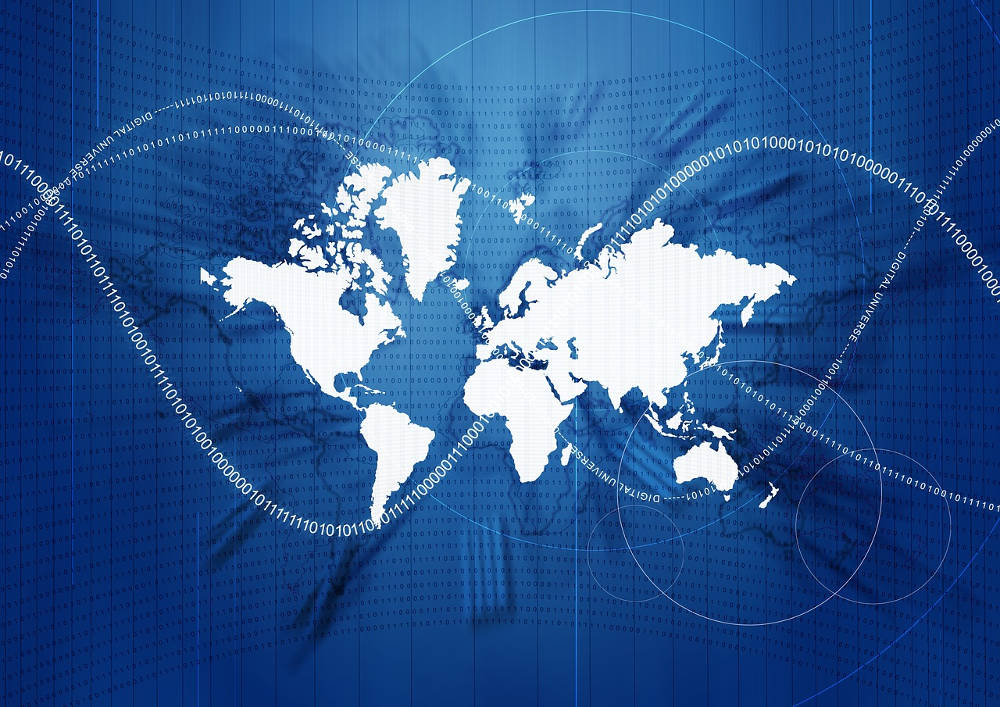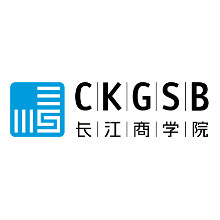[Image by Garik Barseghyan under Creative Commons]
By Neelima Mahajan
When was the last time you listened to music on an actual CD? Or read the day’s headlines in a physical newspaper? Chances are it has been years. Digital technology and software has replaced a lot of things in our lives.
According to media futurist Robert Tercek, going forward we’ll see more of ‘vaporization’, a term he has coined to refer to the process of replacing physical things with software that can be downloaded to any device. The apps on your phone have quietly replaced newspapers, books, music players, diaries and countless other things.

[Robert Tercek, author of 'Vaporization']
“We are moving from millions to billions, to trillions of connected devices, and the invisible world of software is growing at twice the rate of the normal economy,” says Tercek. “So this process is gathering momentum right now.” As more people connect to the network, the software of the network becomes more valuable and that drives even more people to connect, increasing the value of the network.
In this interview, Robert Tercek, the former President of Digital Media at The Oprah Winfrey Network and author of the book Vaporized, talks about how software is disrupting society.
Q. You say we are moving to a software-defined society. How is that changing the way the economy functions?
A. The first rule that’s important for the software world is this idea that the network is more valuable and the devices get cheaper—that changes the economics. It’s very difficult for manufacturing companies to understand that in the future products will be cheaper, but also more valuable. Devices will get cheaper and smarter. Metcalfe’s Law says the network will get more valuable over time. For the end users things cost less so they expect devices to be cheaper and smarter and they expect to get more value out of them. For companies that manufacture products, this is very difficult. Those companies are vulnerable to internet economics, the economics of Facebook or Google. That’s a challenge that most companies haven’t realized.
All companies will become software companies. The implication of that has not yet sunk in and many companies are still operating in old industrial styles. They seldom realize that software is far more important than the physical product. Auto manufacturers, for instance, don’t see themselves as software companies, they see themselves as car makers. They think the value is in the metal, rubber and plastic. The value is very quickly moving to software. The companies that focus on software for auto are going to be most successful. We saw the same thing in personal computers, mobile phones and consumer electronics: software eventually became more important than the physical device.
Q. Which industries are most prone to vaporization? Are any immune?
A. No industry is immune. I also think that governments, education and healthcare will soon be affected, so this is a megatrend that will reshape the whole society. The industries that have been most affected so far are finance, media, consumer electronics and advertising. The next that will be transformed are healthcare, transportation, education and insurance. Everything that happened in infotech during the past 40 years will soon happen to every other industry in the world. So in a way you can see that any business that involves geography—transportation, logistics or shopping—will be transformed into information businesses. Biology is becoming an information science as well so agriculture, pharmaceuticals, healthcare and the food industry are going to change. We are now able to program biology in the same way we program a computer. Manufacturing is going to be transformed in a couple of ways. The first one is, of course, robotics. Robotics is the replacement of human labour with software, that’s what software automation is. The other trends that are important as well are 3D printing and nanotechnology. There’s already now a 3D printer from Revolution Medicine that will take any substance and break it down to its molecular parts, sort them out and then using software, recompose those molecules into new forms, including combinations that don’t exist in nature… When things are replaced by software, it means that the barriers that constrain—time and space—are eliminated, because software can deliver instantly. China and Asia, the places that we have been outsourcing manufacturing for the US and Europe, [will] no longer have their big advantage. It will erode because now you’ll be able to manufacture in any place using software.
Q. How are governments changing the way they function?
A. In the past, most governments used human labour to enforce regulation and process paper and handle information. In both cases software can do a better job. When you have sensors measuring everything, you don’t need human regulators checking everything. You can simply do that with software and have better data than we get from human inspectors, so enforcement regulation will change tremendously. In future, we will be able to write the rule in software and encode in a bitcoin[-style] blockchain. All the sensors that are connected to the system will simply report the data and we will have software-defined regulation.
In a representative democracy, voting is also [going to be] encoded in the blockchain very soon. We’ve already seen some parties in Scandinavia use the blockchain for their own internal voting.
Q. What’s the future of big corporations like the GEs of the world?
A. The reason we have big corporations is because it’s more efficient for a company to avoid transaction costs for managing a group of freelance suppliers. As long as it’s cheaper to do a job internally within a corporation, the job will be done internally. But now the internet makes it very easy for companies to hire workers who aren’t on the payroll, workers who are outside the corporation. You can use software to manage them. One way to look at Uber is that it has vaporized management—the management of the dispatcher is a software program so job functions have been turned into software. It suggests that we may not need corporations in the future. A company called Ethereum in Canada is trying to replace the entire corporation with software. They are trying to write a software robot program that has all the job functions in the corporation which is kind of a crazy idea, [but it is] actually quite possible.
Q. Do big corporations need to drastically change their business models?
A. In industry after industry, corporations move too slowly. They don’t go out of business, they just become less relevant because they are not where the growth is. So if you choose not to participate, you choose not to turn your company into software or replace jobs with software, you won’t disappear overnight. A future growth [driver] will emerge and your company will not be part of it. Automakers and watchmakers have a difficult choice to make: they can’t stop making cars or watches, that’s their business today. At the same time, they see that the future is going to be all about software, and cars or watches will be less important, but they are not good at making software. They certainly aren’t good enough to compete with Google or other software giants. Should that company embark on a rapid course of action and try to become a software developer or should they partner with Google? If you partner with Google, that’s not a great strategy because look at what happened to the smartphone companies. All the companies that manufacture smartphones don’t make much money on smartphones: Google literally commoditizes these companies because it sucks the value out of the device and into the network. This is a very difficult challenge for every company that manufactures products: they must become a software company. The question is do they build it themselves, do they buy a company or do they partner with a giant company like Google and become part of their ecosystem? All difficult choices.
Q. In your book you talk about companies that are threatened by demand destruction due to vaporization. Have you come across companies that have come back to relevance?
A. We often talk about how film companies Kodak and Panavision were crushed by digital, but it turned out that those companies have enormous amounts of intellectual property, trademarks and technology for digital. Actually they have quite a lot of digital technology. They haven’t done a very good job of using that, that’s why they went bankrupt. But now those companies still exist and are leaders in their field. They found a niche where they can survive. Many companies do everything they can to preserve the past at the expense of the future. [They] would rather preserve their old business because they understand it well and it’s profitable. But the world is changing. If they resist this change, they will be stuck with this ever dwindling business.
Q. What do you see emerging as the new sources of competitive advantage in this new world?
A. The companies that understand they have a proprietary data asset will [succeed]. What I mean by proprietary data asset is any information asset that grows. In the case of Facebook that’s the social graph. There are many other companies that are mapping the world right now, they are building a location graph. Google has a tremendous knowledge about where people are surfing and where they going so they have the interest graph. Each company can thereby define a graph. The idea is that each business has at its core, a unit of information, a body of information. When we move business to the network, that information asset should grow if you design your business in the right way. That will emerge as the most important thing for that company over time: an information asset that continues to grow as more people and more devices are connected. Companies that don’t rush to embrace often lose their information advantage and someone else comes and steals that from them. So one way to look at all the struggles that are happening around the world right now, is there’s a battle happening for control of data assets. You see this when Google is confronted by the European government about privacy, or when Apple is confronted by the FBI about secrecy and security. Most companies do not understand how to manage or protect their data assets. The successful companies make [data protection] a priority.
Q. So what do you think the Fortune 500 list will look like 20 years from now? What kind of companies will you see there and which ones would be gone?
A. Big automotive makers will be replaced by big companies that provide transportation as a service. Banks will be replaced by companies that provide automatic, secure transactions using the blockchain or something similar… Today the businesses of pharmaceutical companies is a bit like Hollywood: they spend lots of money making drugs and they hope that one becomes a big hit and they make billions of dollars. In the future, you will have customized medical treatment designed for your genome. It will be individualized healthcare. So pharmaceutical [companies will] shift from mass manufacturing drugs to more of a service delivery model that will be customized to individuals. The companies themselves may stay and remain successful, but they will change into software companies that provide digital services.
Q. What other areas will feel the impact?
A. Education will be delivered in software in the future and this bothers a lot of people who feel very sentimental about college education. It’s obvious that most people in the world can’t afford to go to a private college, most university systems [cannot] take in millions of new students. There has to be an alternative. Software delivery education is the reality today. It’s not as good as college education, but remember these are early days. We have to educate a billion people a year, there’s no way we can do that within campus. Robotics will shift so many people out of jobs, everyone will have to retrained. Every worker will have to reskill and retrain consistently. One of the things we will have to do is learn how to work with machines, robots and software automation.
If you think about all the really big industries in the world—healthcare, food supply, transportation, energy—all these enormous systems have been designed to serve human beings. That worked well for the last 200 years, but here’s the question: if you can vaporize everything, the ultimate expression is to replace the human body by software. Can we replace the human body with software? It seems preposterous, yet there are scientists working right now to model the human brain and replicate the human being in software. Some scientists are working on whole brain emulation. Why? One, there are a lot of places we can’t explore: in the depths of the ocean, inside volcanoes, deep inside the earth and also in space. Human beings can’t survive in those environments, machines can. If we travel to other stars or planets, the only way that’s going to happen is if we can replace the human body, because too much of the weight of spacecraft cargo is life support for human bodies.
Q. Is everything about this good?
A. There’s always danger with technology. Technology always makes something that we are familiar with obsolete. You can think of it as super power: it introduces new powers that can be used for good or bad. We shouldn’t judge the technology, it’s really how it is used we should judge, that is a human decision. People are worried about artificial intelligence. This is silly. It’s artificial intelligence that’s poorly written, [that is used in] the wrong way by human beings, those are things we should be concerned with.
[This article has been reproduced with permission from CKGSB Knowledge, the online research journal of the Cheung Kong Graduate School of Business (CKGSB), China's leading independent business school. For more articles on China business strategy, please visit CKGSB Knowledge.]

